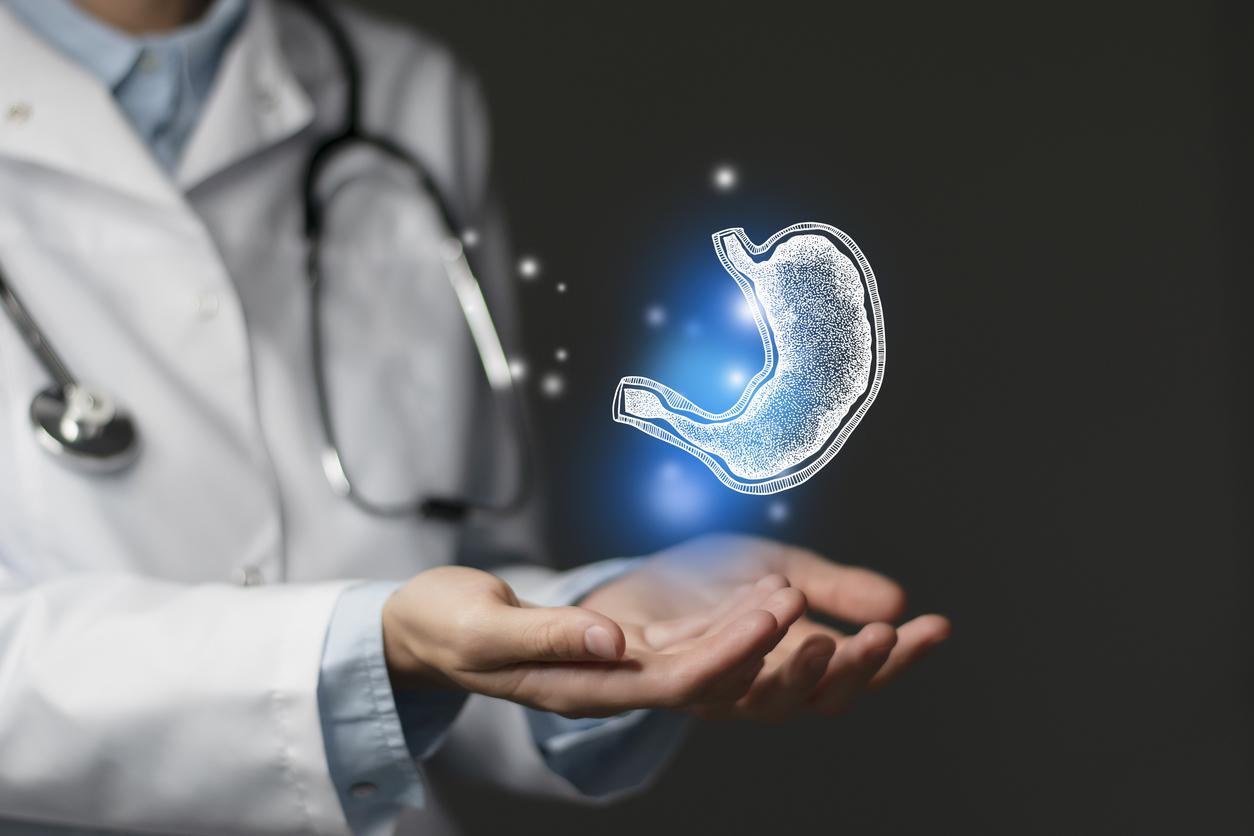People with certain genetic risk factors for stomach cancer are at much higher risk if they have also been infected with Helicobacter pylori bacteria.

- A large study has found that people with certain genetic risk factors for stomach cancer have an even higher risk if they have an H. pylori infection.
- This discovery could facilitate the prevention and management of stomach cancer.
- It could also help develop tailor-made genomic medicine for patients.
Although the number of cases has been falling for several years thanks to improved prevention and treatment, stomach cancer is still present. It is the fourth highest incidence of malignant tumors in men and seventh in women globally.
A new study, published in the journal New England Journal of Medicine, made a discovery that helps to better understand the occurrence of stomach cancer. People with genetic risk factors for gastric cancer are much more likely to have it if they have also been infected with Helicobacter pylori bacteria.
Stomach cancer: 9 genetic variants and H. pylori bacteria interact
Helicobacter pylori bacteria have been identified as a factor in stomach cancer for many, many years. However, the impact of its presence in case of genetic risks of the patient was poorly known. To document this, international researchers from the RIKEN Center for Integrative Medical Sciences (Japan) analyzed DNA samples from more than 11,000 patients with gastric cancer and 44,000 people without tumors. They studied more precisely 27 genes associated with hereditary tumors. Their research revealed 9 genes strongly associated with the risk of stomach cancer.
The scientists then focused on the interaction between mutations in these nine genes and the patient’s history of H. pylori infection. “First, they found that gastric cancer risk was significantly higher when a pathogenic mutation was associated with H. pylori infection than when either factor was present alone. Of the nine genes, four were of particular interest because they encode proteins that normally help repair damaged DNA.” explain it Press release of the research institution.
The experiment’s first author, Yoshiaki Usui, believes that these particular genetic elements make the damage caused by the bacteria worse. “H. pylori infection leads to cancer because it promotes DNA double-strand breaks and destabilizes stomach cell DNA”explains the expert. “Combining this with genetic variants that prevent normal repair of damage appears to significantly increase the risk of gastric cancer”.
Gastric cancer: reducing the risks by evaluating the genes
“Reducing the risk of stomach cancer by testing for H. pylori infection and eradicating it remains a high priority for everyone, whether or not patients carry the pathogenic genetic variants”, say the authors. However, they believe that genetic risk screening could help determine who should be prioritized for interventions to eliminate the bacteria.
Furthermore, better understanding how environmental and genetic factors interact could facilitate management. “The information gained from our study will contribute to medical practice guidelines on gastric cancer and pathogenic genetic variants, and should help establish a tailored genomic medicine system, including improved diagnostic accuracy, development of therapies targeting causative genes and more appropriate preventive measures against stomach cancer”assures Yukihide Momozawa who also directed this work.














